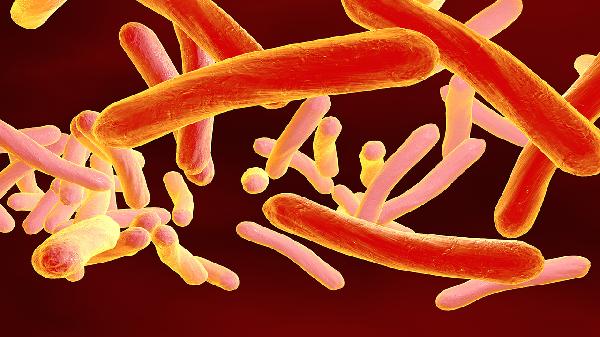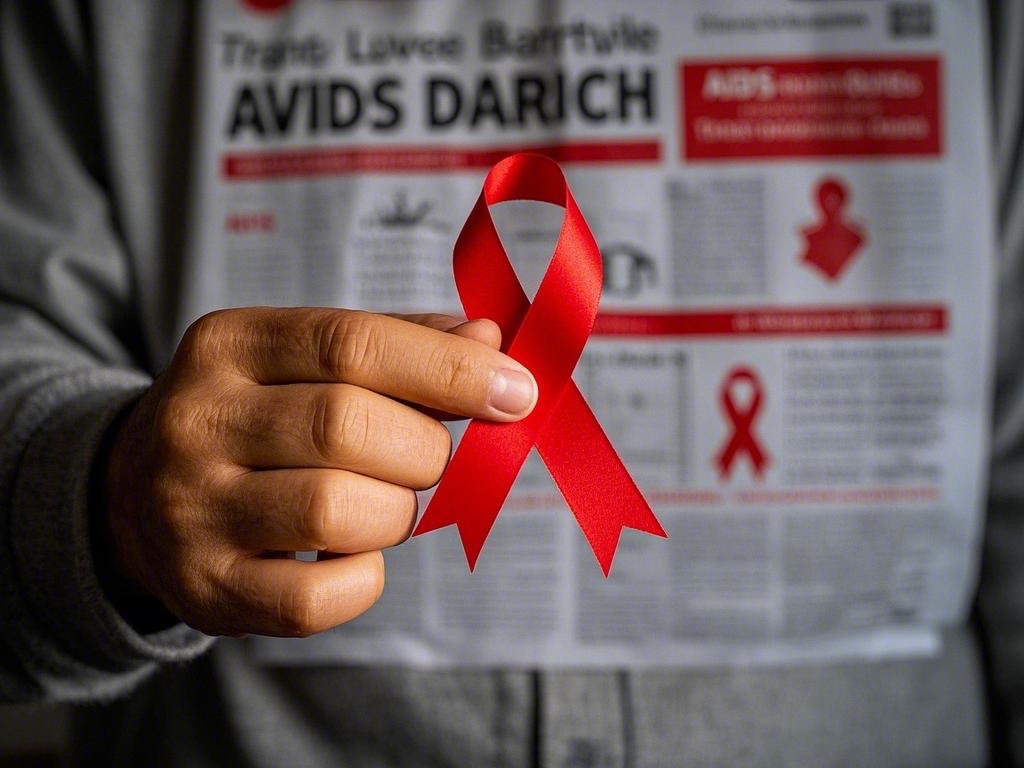AIDS, medically known as Acquired Immunodeficiency Syndrome (AIDS), is an infectious disease caused by the Human Immunodeficiency Virus (HIV). After entering the human body, HIV destroys the immune function, leading to a series of hard-to-treat opportunistic infections and tumors, ultimately resulting in the patient's death. The disease manifests differently in individuals, showing varying clinical symptoms and signs. The immune deficiency caused by HIV is distinct from that caused by other diseases or drug side effects. Since it is transmitted through different means among people, it is referred to as Acquired Immunodeficiency Syndrome.

HIV is a retrovirus with a strong ability for rapid mutation. This characteristic not only makes it difficult for the human immune system to resist its attack but also poses challenges in developing specific therapeutic drugs and preventive vaccines. HIV directly invades the human immune system, damaging both cellular and humoral immunity. It primarily resides in the bodily fluids (such as blood, semen, vaginal secretions, breast milk, etc.) and various organs of infected individuals and patients. It can be transmitted through the exchange of HIV-containing bodily fluids or organ transplants. HIV has weak resistance to the external environment and can be killed by high temperatures, drying, and common disinfectants.
Individuals with HIV in their bodies but without clinical symptoms and signs of AIDS are called HIV carriers. When the immune system is severely damaged by HIV, leading to various opportunistic infections and tumors, they develop into AIDS patients. After being infected with HIV, some carriers can survive for a long time, leading scholars to propose the concept of long-term survivors. The basic conditions are: surviving for 12 years after HIV infection; relatively good immune function with a certain level of CD4 cells; and no obvious AIDS clinical symptoms.
After being infected with HIV, it generally takes 2-12 weeks, averaging around 45 days, for HIV antibodies to be detected in the blood. The period from HIV infection to the production of antibodies, during which HIV antibodies cannot be detected, is called the window period. Although HIV antibodies are not detected during the window period, HIV is already present in the body, making this period infectious. It takes 0.5 to 20 years, averaging 7-10 years, for an HIV-infected person to develop into an AIDS patient. This period is known as the latent period. During the latent period, HIV carriers have HIV in their blood, semen, vaginal secretions, breast milk, and organs, making them infectious.
Dietary Principles for HIV Carriers
1. High-energy, high-protein diet
Typically, HIV carriers and patients experience increased protein consumption, reduced intestinal absorption, and weight loss due to changes in constitution. Additionally, medication can affect the patient's hematopoietic function. To address these issues, the diet should focus on high-protein and high-calorie foods, following the principle of "diverse, small, and balanced" meals. Beneficial high-protein foods include: seafood such as fish, shrimp, squid, shellfish, and crab; poultry like chicken, pigeon, and rabbit; milk and dairy products such as high-quality cheese; eggs; legumes like tofu, soy milk, and other soy products; and other meats. A high-protein diet can increase the burden on the kidneys, so if the body is unwell, consult a doctor or nutritionist for appropriate dietary adjustments.
2. Pay attention to vitamin and mineral supplements
Eat plenty of fresh fruits and vegetables, especially those rich in carotene (such as spinach, kale, sweet potatoes, pumpkin, and carrots), vitamin C (like bell peppers, oranges, broccoli, and spinach), vitamin E (such as hazelnuts, pine nuts, and almonds), and zinc (like oysters, shellfish, and grains). Try to avoid high-fat foods and sweets.
3. Eat fresh vegetables and fruits
HIV carriers and patients should eat fresh vegetables and fruits daily to enhance disease resistance. Particularly, eat those rich in vitamin A, carotene, vitamin C, and vitamin E.
4. Eat small, frequent meals at regular intervals
Overeating can cause indigestion and damage the spleen and stomach, which is detrimental to the condition; undereating can lead to insufficient nutrient intake. Therefore, HIV carriers and patients should eat small, frequent meals, ideally five to six meals a day.
5. Diversify food intake
Try to include several types of food in each meal and plan a diet that includes five categories of foods.
6. Avoid spicy and other irritating foods.
7. Maintain appropriate food temperature
Since AIDS patients generally have weak spleen and stomach, Chinese medicine suggests that most cases should be given warm food and hot drinks.
8. Avoid raw, cold, and greasy foods to prevent diarrhea
Chronic diarrhea is a common complication of AIDS and a major factor in weight loss, which significantly shortens survival time compared to patients with normal weight. Therefore, reducing diarrhea and improving food absorption are essential for maintaining normal weight. Director Lu suggests that AIDS patients should eat low-fat foods, with a daily fat intake of around 40g, and avoid hard-to-digest foods that can worsen diarrhea. Use steaming, boiling, stewing, and baking methods for cooking, avoiding frying. Additionally, daily protein intake should be around 100g, with energy between 10.46-12.55MJ (2500-3000kcal).
Eat low-fat, high-protein foods such as lean meat, chicken, seafood, and soy products. Avoid high-fiber and rough foods like fruits and vegetables with seeds and skins, beans, corn, onions, garlic, cauliflower, bread, and peanuts. High-fiber foods like leeks, celery, and pickled mustard can stimulate intestinal movement, worsening diarrhea. Eat easily digestible foods like fine noodles, porridge, soft rice, and tofu. Supplement vitamins and minerals. If diarrhea is frequent, reduce vegetable and fruit intake and use fresh juices and tomato juice for vitamins. Drink plenty of fluids and eat potassium-rich foods like bananas, potatoes, fish, and meat. Some foods help stop diarrhea, like white rice, boiled noodles, and white bread. Avoid beans if experiencing bloating.
9. Choose easily digestible foods and semi-liquids
Avoid fried foods (like fried chicken and pancakes) and eat more easily digestible steamed and boiled dishes (like steamed eggs and noodles).
10. Pay attention to food hygiene
Due to the compromised immune function of HIV carriers and patients, pay extra attention to food hygiene. Avoid unclean or raw foods, wash hands before eating, and ensure a clean dining environment. In case of diarrhea, drink plenty of fluids like water and non-citric juices to rehydrate, and avoid caffeinated drinks and dairy. Avoid fried foods and fresh fruits until diarrhea resolves.
After being infected with HIV, changes in metabolism and food digestion and absorption occur, leading to symptoms like diarrhea, loss of appetite, and nausea, which worsen nutritional deficiencies, reduce disease resistance, and affect physiological functions. Experts recommend nutritional support alongside drug treatment, as nutritional status is a key factor in determining the survival time of AIDS patients. Timely nutritional supplementation is crucial when different symptoms appear.
11. Do not smoke or drink alcohol.
Which foods are suitable for AIDS patients and have anti-HIV effects?
Soybeans
In addition to being rich in protein, soybeans contain selenium, a trace element that enhances disease resistance. Soybean saponins inhibit HIV, preventing its growth and reproduction in the body.
Cucumber
Cucumbers contain carotene C, which boosts the immune system and has antiviral and anticancer effects. The bitter chemical at the end of a cucumber can kill HIV.
Bitter melon
Bitter melon protein strongly inhibits HIV. American scientists had 50 AIDS patients consume large amounts of bitter melon or hold bitter melon juice in their mouths, achieving good therapeutic results.
Kelp
Kelp is rich in iodine, which promotes the absorption of inflammatory exudates and has a certain inhibitory effect on cancer. Kelp also contains sulfate esters, which protect immune system cells from HIV, preventing AIDS.
Goose blood
Goose blood contains a large amount of immunoglobulins, which enhance immune function, increase white blood cells, and promote lymphocyte phagocytosis, offering strong resistance to HIV.
Garlic
Garlic contains plant bactericides, which kill cells and various viruses and rickettsiae. Regular consumption of garlic boosts immunity and prevents various diseases. Research shows that HIV dies within 5 minutes in garlic leaf juice. Therefore, eating garlic regularly is significant in preventing AIDS.
In addition, AIDS patients can appropriately consume some medicinal diets:
1. Strengthening the foundation
Formulas using Chinese herbal medicines to enhance immune function, improve macrophage function, increase lymphocyte transformation, and stimulate immune function, adjusting hormone levels to activate certain enzymes.
Ginseng porridge
Ingredients: 3g ginseng powder, 50g jasmine rice, cooked into porridge.
Effect: Replenishes vitality, strengthens the spleen and lungs, and calms the mind. Ginseng, as an immune modulator for AIDS, enhances non-specific immune function and increases DNA biosynthesis.
Atractylodes and pork belly porridge
Ingredients: 30g Atractylodes, 10g betel nut, a little ginger, simmered and strained. 250g pork belly, diced, and 100g jasmine rice, cooked into porridge and seasoned.
Effect: Tonifies the middle and benefits qi, strengthens the spleen and stomach. Suitable for fatigue, poor appetite, abdominal fullness, and irregular bowel movements.
2. Clearing heat and detoxifying
AIDS often leads to various fatal opportunistic infections. Heat-clearing and detoxifying herbs have anti-inflammatory, antiviral, and antibacterial effects, enhancing immune function and suppressing pathological immune responses.
Violet and Patrinia sugar tea
Ingredients: 30g each of violet, dandelion, and patrinia, simmered and strained, with a little sugar added as tea.
Effect: Clears heat, detoxifies, and anti-inflammation. The effective component in violet, a galactose-containing sulfated polysaccharide, inhibits HIV in cell culture.
Silver and Chrysanthemum porridge
Ingredients: 50g jasmine rice, cooked into porridge, with 10g each of honeysuckle and chrysanthemum steeped in hot water, added to the porridge.
Effect: Clears heat and detoxifies, treats fever. Honeysuckle inhibits HIV and reduces cholesterol absorption in the intestines.
























